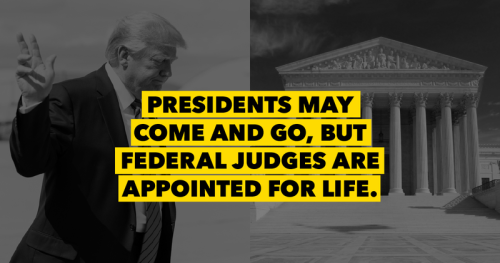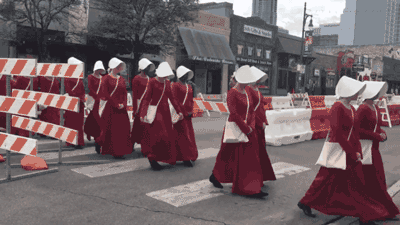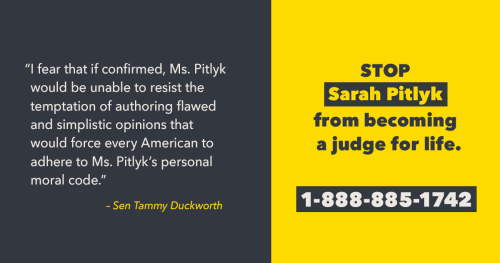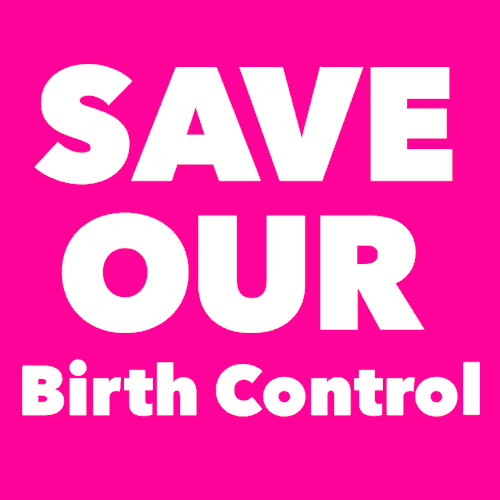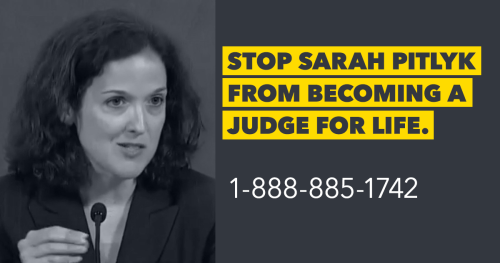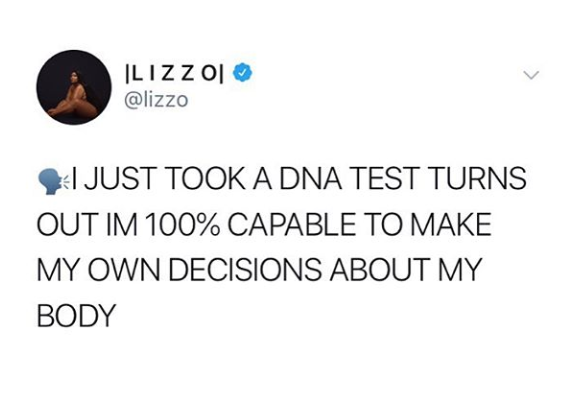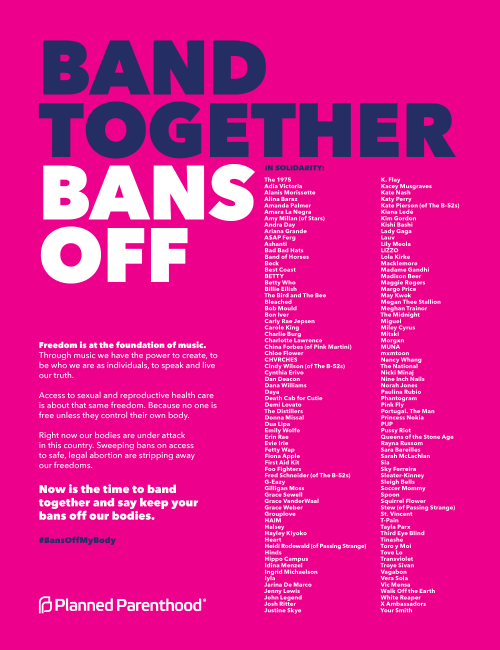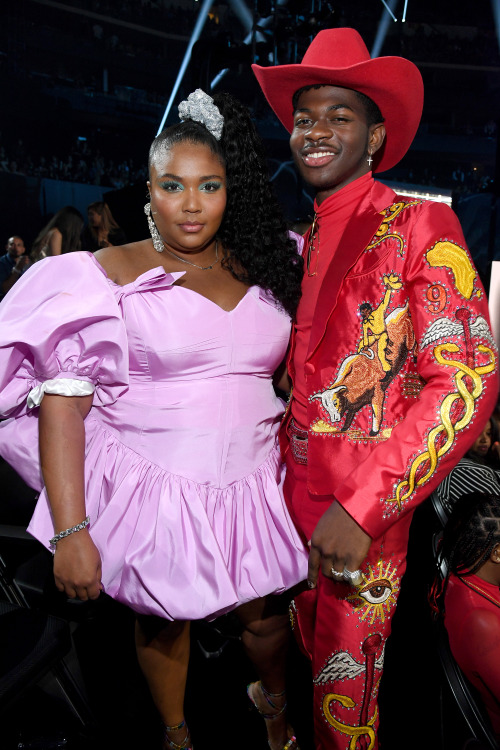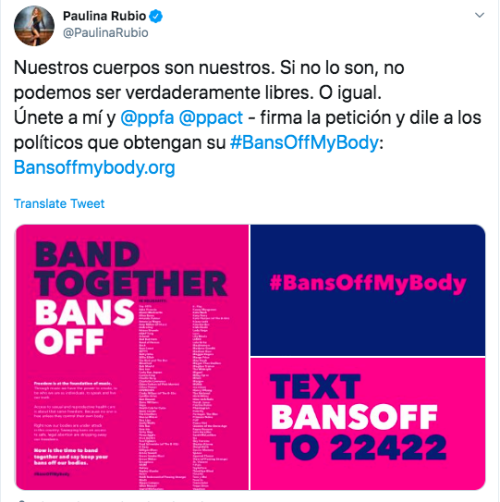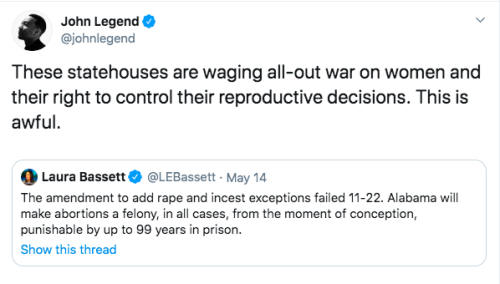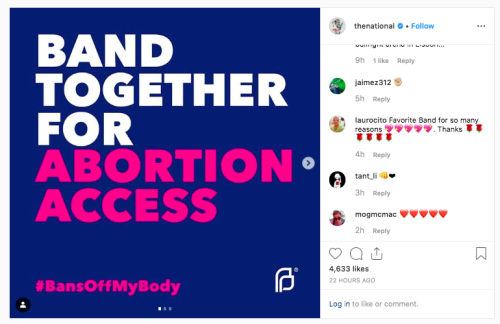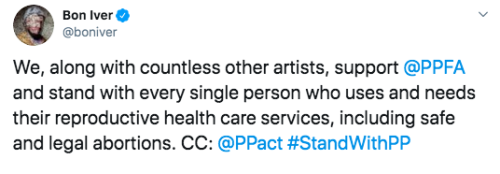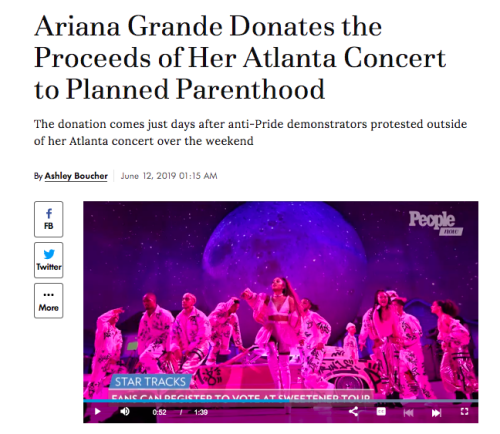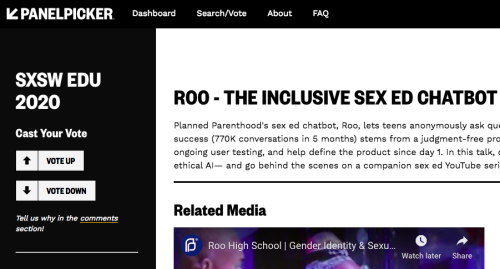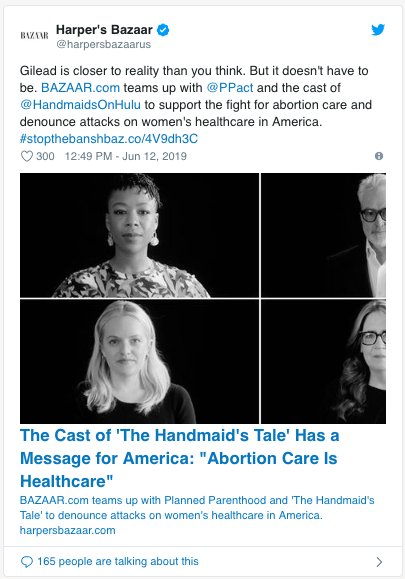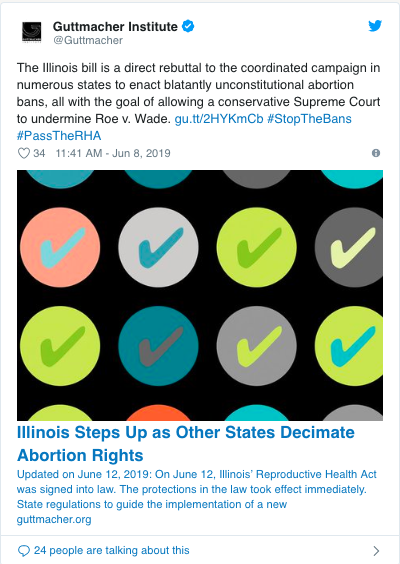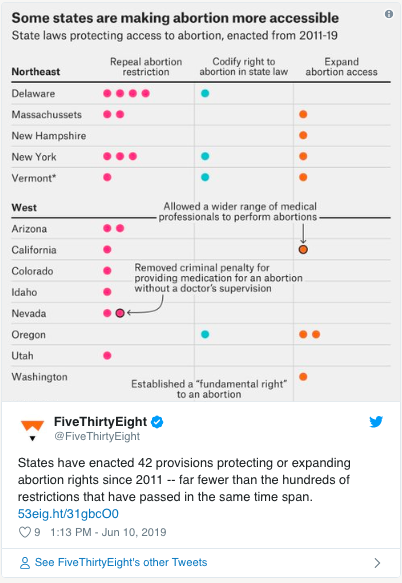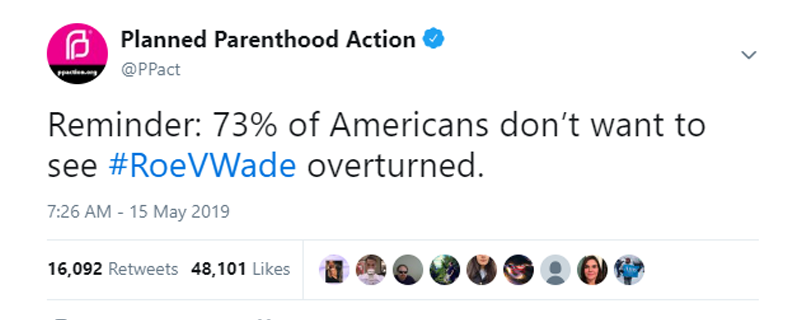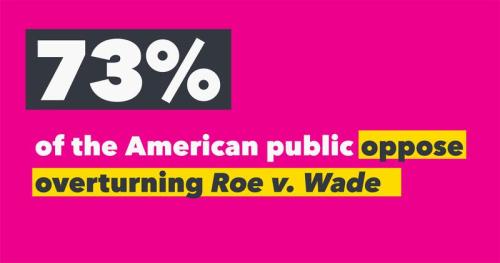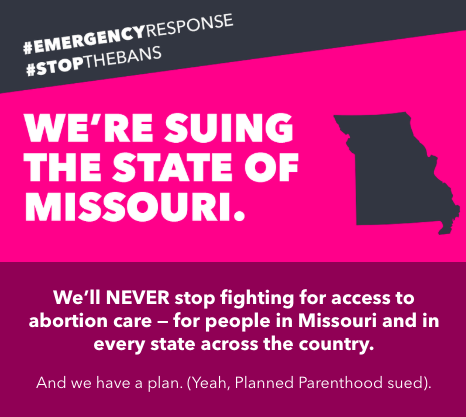In their own words, four organizers discuss why they push for public policies that truly represent the Latinx community — and work to protect access to health care.
Planned Parenthood health centers provide care to communities across the country — people of all colors, all gender expressions, regardless of income, education, or immigration status. But that care affects each of our communities in different ways.
The Latinx people who power Planned Parenthood can attest to that truth, and can speak from knowledge about how their life experience informs the ways Planned Parenthood speaks about — and works to protect and expand — access to health care
We want you to meet a few of the Latinx members of the Planned Parenthood family — and to learn from them, in their own words, about the importance of the work they do every day.
Angelica Romero
Raíz Organizer, Planned Parenthood Arizona
1. How long have you worked at Planned Parenthood?
I am a new Raíz organizer and have been on staff for five months — but I was a Raíz volunteer for two years.
2. Why did you come to work at PP?
I got involved with PP because I knew this administration would attack women — but specifically women of color like myself. Planned Parenthood not only focuses on health care for all, but also advocates for immigrant rights so I thought it would be the perfect route to fight for the injustices that matter to me.
3. What does the Raíz organizing work mean to you?
Organizing with Raíz is like organizing for our roots and where we come from. Educating our communities of color on reproductive care issues is something powerful because at times, our people are the ones who are being left out of the reproductive care conversations. Seeing my mom be educated about the services we provide and being able to break the abortion stigma she held is something powerful, and even more empowering when it can be done to many other women like my mother through the Raíz program.
Norma Jimenez
Specialist, Latino Leadership and Engagement, Planned Parenthood Federation of America
1. How long have you worked at Planned Parenthood?
I started my involvement with Planned Parenthood in Phoenix in 2014 when President Obama rolled out the Affordable Care Act (ACA). At the time I was working with a Planned Parenthood group called Community Connect — which I had heard about when a friend who knew I was looking for an internship related to health care emailed to say, “you should apply to this.” That job focused on helping Latinx people and people of color get health insurance. Over the course of six months, I walked neighborhoods, knocked on over 100 doors, mainly Spanish-speaking households, and assisted them in enrolling and choosing a healthcare plan that would work for them and their families through the ACA.
After the enrollment period ended, I continued to engage with Planned Parenthood locally and kept working with Latinx folks through a program called Raíz. As an organizer with Raíz, I helped get sex-ed policies adopted by local school districts and provided an educational forums and pláticas to Spanish-speaking communties and partners. I decided that I wanted to continue being connected with Planned Parenthood, and now, I am working with the strategic partnerships team at the national office in DC.
2. Why did you come to work at PP?
I grew up in a Catholic household in a Mexican family. At a young age, I was made aware to never let anyone touch my body without my permission; or if I was ever made uncomfortable by a male or anyone, to let my mom or grandma know. That was it. All other topics related to reproductive care, education or health care were not talked about.
When I was in middle school, my body started to develop faster than many other of my girl friends. I hid my body under loose clothing when I went to school and hated my body because I was starting to look like a woman. During this time, I also got my period (in middle school) during class and I was so scared. That moment changed me. I was scared, confused and I felt alone and questioned, “why me?” — as if I was broken and I had done something wrong. I had to learn how to navigate that time and moment on my own. My family didn’t talk to me about it. They didn’t know how.
I understood soon enough that many of our moms, and loved ones don’t know how to bring up the subject of reproductive care to their children. Many of our parents think our teachers should be educating us on “sex topics” when in reality, comprehensive sex education is not taught in school at all.
This is why I have decided to work with Planned Parenthood. Planned Parenthood is the country’s largest sex education provider as well as the go-to provider for reproductive health care for people. Planned Parenthood was there for me when I needed my first annual exam. They were there when I needed to learn about my birth control options and most importantly, Planned Parenthood helped me find my voice, and my identity. I learned to love my body unconditionally. I want all young people to know they are not alone, and it’s okay to feel confused and scared. Planned Parenthood is here for you.
3. What does the Raíz organizing work mean to you?
My first time learning to unpack all the bottled-up feelings and trauma I had since I was little, was through Raíz. Raíz provided me with resources and skills to help me develop my professional career. To be empowered, to make my own choices while at the same time being true to the values my family had instilled in me. I identify as an immigrant, as a woman, as a Latina, as a feminist, as the first to go to college, as a survivor.
Raíz is not just another Planned Parenthood program. Raíz uplifts our people, our communities, it empowers people to be true advocates for what they believe. Raíz advocates for justice and helps change policies for the betterment of our families and selves. Raíz works with our moms, abuelitas, with teens, students, with community partners to work on issues that are important to us.
Raíz organizers know we are not single-issue people who live single-issue lives. Raíz upholds our culture, our races, our people and more than anything, trust and family.
Victoria Ruiz-Marin
Raíz Organizing Specialist, Planned Parenthood of the Rocky Mountains
1. How long have you worked at Planned Parenthood?
I have worked for Planned Parenthood since January of 2017. I was hired by PPFA as a Raíz Organizer to engage the Latinx community in Las Vegas. At the start of 2018 I transitioned into my local affiliate, Planned Parenthood of the Rocky Mountains.
2. Why did you come to work at PP?
I decided to work for Planned Parenthood because I recognized the lifesaving medical services they provide each and every day to women and people who need it most. As an undocumented individual who did not have a maternal figure during my adolescence due to unjust immigration policies, I found myself with a pregnancy scare and no knowledge of how to proceed during my high school years. During that stressful time in my life, Planned Parenthood was there for me. The nurse who saw me was kind. She addressed my concerns, and talked to me about the birth control options that were available.
As I grew older I realized that several women in my community had not accessed reproductive health care, because of barriers rooted in discrimination. When I was approached about the position with Raíz, I was excited for the opportunity to engage other Latinx community members around access to reproductive health care and the protection of our reproductive rights. The Latinx community is one of the most marginalized and underserved; I knew that through Raíz I would be able to unite my community in order to drive the change needed to protect our reproductive rights.
3. What does the Raíz organizing work mean to you?
The work being done through Raíz means I’m able to give back to my community by empowering them to become leaders who advocate for their reproductive freedom. Through Raíz, we can collectively break down the existing barriers that keep us from accessing health care. Organizing my community allows me to uplift their voices and experiences to affect policy and ensure our access to reproductive health care, and hold our elected officials accountable. Raíz is truly about justice and building the most authentic and sustainable partnerships among Latinx folks.
Joshua Alba
Raíz Fellow, Planned Parenthood League of Massachusetts
1. How long have you worked at Planned Parenthood?
I’ve worked at Planned Parenthood since late August 2018 — so, nine months.
2. Why did you come to work at PP?
Coming to work at Planned Parenthood was not initially part of my plan, so it was a surprise. As a cis-male Latino, I had always seen Planned Parenthood as a womxn’s organization, even though I’ve sought its services. I decided to take the opportunity, because I realized that all the reading and healing that I’ve been doing for myself, with my partners, family and friends, around trauma and toxicity stemmed from my relationships with my body, and everyone around me. I still get shook when I register just how fundamental sexual and reproductive health is to identity, empowerment, connection — and how basic health is to all of us.
3. What does the Raíz organizing work mean to you?
This work I’m doing through Raíz is a cornerstone to liberation for me and my people. When I look at the still-lingering effects of Puritan decimation in the Northeast and Catholic colonialism in the Caribbean — I’m Dominican American — I see bodies policed, slaves, minds shackled, forced breeding, rape, mutilation and murder. My family is a direct product of that, and that trauma lives in me. I struggle to heal, and in order to heal, we have to change the core ways in which we see ourselves that we’re established so very long ago. That means owning our own bodies, that means respecting other’s bodies and choices, and doing no harm from this ground level, all the way up. That means fighting for the right for everybody to be able to have, at least, enough protections in this area of our lives, so that we can heal our generational wounds. That’s what Raíz means to me. It’s up to us.




